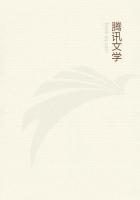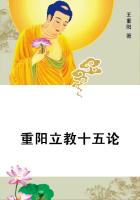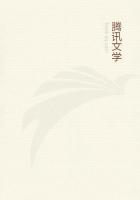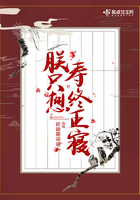'The great fire,' says I; 'wha was to think of plate, when life and limb were in danger?' 'Where's the wardrobe and the linens?--where's the tapestries and the decorements?--beds of state, twilts, pands and testors, napery and broidered wark?' 'The fire--the fire--the fire.' Guide the fire weel, and it will serve ye for a' that ye suld have and have not; and, in some sort, a gude excuse is better than the things themselves; for they maun crack and wear out, and be consumed by time, whereas a gude offcome, prudently and creditably handled, may serve a nobleman and his family, Lord kens how lang!"Ravenswood was too well acquainted with his butler's pertinacity and self-opinion to dispute the point with him any farther. Leaving Caleb, therefore, to the enjoyment of his own successful ingenuity, he returned to the hamlet, where he found the Marquis and the good women of the mansion under some anxiety--the former on account of his absence, the others for the discredit their cookery might sustain by the delay of the supper.
All were now at ease, and heard with pleasure that the fire at the castle had burned out of itself without reaching the vaults, which was the only information that Ravenswood thought it proper to give in public concerning the event of his butler's strategem.
They sat down to an excellent supper. No invitation could prevail on Mr. and Mrs. Girder, even in their own house, to sit down at table with guests of such high quality. They remained standing in the apartment, and acted the part of respectful and careful attendants on the company. Such were the manners of the time. The elder dame, confident through her age and connexion with the Ravenswood family, was less scrupulously ceremonious. She played a mixed part betwixt that of the hostess of an inn and the mistress of a private house, who receives guests above her own degree. She recommended, and even pressed, what she thought best, and was herself easily entreated to take a moderate share of the good cheer, in order to encourage her guests by her own example. Often she interrupted herself, to express her regret that "my lord did not eat; that the Master was pyking a bare bane; that, to be sure, there was naething there fit to set before their honours; that Lord Allan, rest his saul, used to like a pouthered guse, and said it was Latin for a tass o' brandy; that the brandy came frae France direct; for, for a'
the English laws and gaugers, the Wolf's Hope brigs hadna forgotten the gate to Dunkirk."Here the cooper admonished his mother-in-law with his elbow, which procured him the following special notice in the progress of her speech:
"Ye needna be dunshin that gate, John [Gibbie]," continued the old lady; "naebody says that YE ken whar the brandy comes frae; and it wadna be fitting ye should, and you the Queen's cooper; and what signifies't," continued she, addressing Lord Ravenswood, "to king, queen, or kaiser whar an auld wife like me buys her pickle sneeshin, or her drap brandy-wine, to haud her heart up?"Having thus extricated herself from her supposed false step, Dame Loup-the-Dyke proceeded, during the rest of the evening, to supply, with great animation, and very little assistance from her guests, the funds necessary for the support of the conversation, until, declining any further circulation of their glass, her guests requested her permission to retire to their apartments.
The Marquis occupied the chamber of dais, which, in every house above the rank of a mere cottage, was kept sacred for such high occasions as the present. The modern finishing with plaster was then unknown, and tapestry was confined to the houses of the nobility and superior gentry. The cooper, therefore, who was a man of some vanity, as well as some wealth, had imitated the fashion observed by the inferior landholders and clergy, who usually ornamented their state apartments with hangings of a sort of stamped leather, manufactured in the Netherlands, garnished with trees and aminals executed in copper foil, and with many a pithy sentence of morality, which, although couched in Low Dutch, were perhaps as much attended to in practice as if written in broad Scotch. The whole had somewhat of a gloomy aspect; but the fire, composed of old pitch-barrel staves, blazed merrily up the chimney; the bed was decorated with linen of most fresh and dazzling whiteness, which had never before been used, and might, perhaps, have never been used at all, but for this high occasion. On the toilette beside, stood an old-fashioned mirror, in a fillagree frame, part of the dispersed finery of the neighbouring castle. It was flanked by a long-necked bottle of Florence wine, by which stood a glass enarly as tall, resembling in shape that which Teniers usually places in the hands of his own portrait, when he paints himself as mingling in the revels of a country village. To counterbalance those foreign sentinels, there mounted guard on the other side of the mirror two stout warders of Scottish lineage; a jug, namely, of double ale, which held a Scotch pint, and a quaigh, or bicker, of ivory and ebony, hooped with silver, the work of John Girder's own hands, and the pride of his heart.
Besides these preparations against thirst, there was a goodly diet-loaf, or sweet cake; so that, with such auxiliaries, the apartment seemed victualled against a siege of two or three days.















